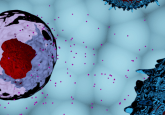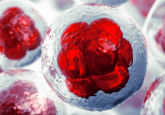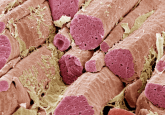Study finds that hair follicle transplantation promotes scar tissue remodeling

Researchers have demonstrated that transplanted hair follicles can promote remodeling in scar tissue.
A pilot study conducted by a team of researchers from Imperial College London (UK) has shown that transplanted hair follicles can facilitate regeneration and remodeling in scar tissue. The findings published in npj Regenerative Medicine detail how the team observed morphological and genetic changes in scar tissue of the study participants over a period of 6 months. This could be used to improve treatments for both external and internal scarring.
Previous studies have shown that healthy skin undergoes remodeling during the growth stage of the hair follicle cycle. In addition to this, it is believed that hairy skin scars less and heals faster than non-hairy skin. With this knowledge in hand, the researchers set out to test the hypothesis that hair follicles could promote remodeling in mature scars.
In collaboration with Francisco Jiménez, hair transplant surgeon and associate research professor at the University Fernando Pessoa Canarias (Las Palmas, Spain), the team transplanted hair follicles into mature normotrophic scars on the scalps of three participants. 3 mm-thick biopsies were collected and analyzed with microscopy after 2, 4 and 6 months had elapsed since the transplantation.
The team observed hair growth and active remodeling of the scar tissue as it began to bear similarities to healthy, uninjured tissue. Changes in over 700 genes were observed, with the upregulation of genes associated with vascularization and cell growth and the downregulation of genes associated with scar formation. Additionally, the epidermis had doubled in thickness, becoming like that of healthy uninjured skin. The collagen fibers within the scar tissue decreased in density resulting in softer and more flexible tissue, a key feature of healthy skin. The transplant also promoted the growth of new cells and blood vessels in the scar tissue, which is not normally possible.
Whilst the exact mechanism remains unknown, the researchers are now working on understanding how this process works, in hope that novel therapies can be developed without the requirement of a hair follicle transplantation to initiate the process.
Claire Higgins (Imperial College London), the lead author commented: “After scarring, the skin never truly regains its pre-wound functions, and until now all efforts to remodel scars have yielded poor results. Our findings lay the foundation for exciting new therapies that can rejuvenate scars and restore the function of healthy skin.”





